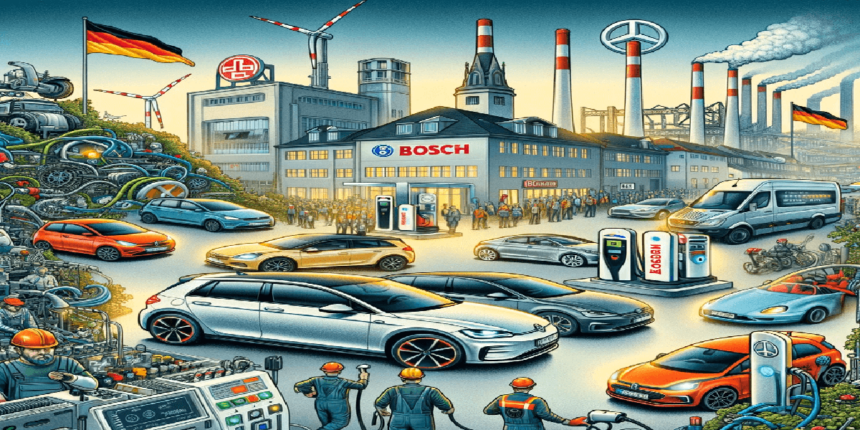In the wake of the automotive industry’s seismic shift towards electric vehicles (EVs), leading German suppliers like Bosch, Continental, and ZF are at a pivotal juncture. This transition, propelled by the urgent need for environmental sustainability and bolstered by stringent emissions regulations, is reshaping the industry’s landscape. As these companies pivot from their traditional focus on internal combustion engine (ICE) components to the burgeoning EV market, the repercussions on the workforce are profound.
The shift to EV production is not merely a change in product lineup; it represents a fundamental transformation in the skills and processes that have underpinned the automotive supply chain for decades. Traditional roles associated with ICE manufacturing are under threat, prompting these companies to announce significant job cuts. The challenge of realigning their workforce to meet the demands of EV technology underscores the broader industry trend of automation and digitization, which further complicates the employment outlook.
However, this period of transition also opens new avenues for innovation and growth. Investments in research and development (R&D) are soaring, as suppliers seek to lead in EV technology, battery systems, and autonomous driving solutions. These areas not only promise to redefine mobility but also offer a pathway to secure and create jobs in emerging fields. Training and reskilling employees emerge as critical strategies, enabling the workforce to navigate this technological upheaval.
The economic implications of this transition extend beyond the companies and their employees. There’s a ripple effect on the German economy and the global automotive market, with supply chains, consumer behavior, and regulatory frameworks all in flux. The strategic decisions made by these suppliers today will likely set the course for the industry’s future, determining its competitive landscape and its role in the global push for a more sustainable, electrified future.
As German auto suppliers grapple with these challenges, the narrative is one of cautious optimism. The journey towards electrification is fraught with uncertainty, but it also presents an unprecedented opportunity to redefine the industry. With a clear vision and strategic investments in technology and talent, these suppliers can navigate the transition, mitigate the impact on their workforce, and emerge as leaders in the new automotive era.
The broader conversation around this transition also touches on societal and environmental goals, highlighting the automotive industry’s role in combating climate change. As the world watches, the steps these companies take will not only shape their futures but also influence the pace at which the automotive industry can contribute to achieving global sustainability targets.
















